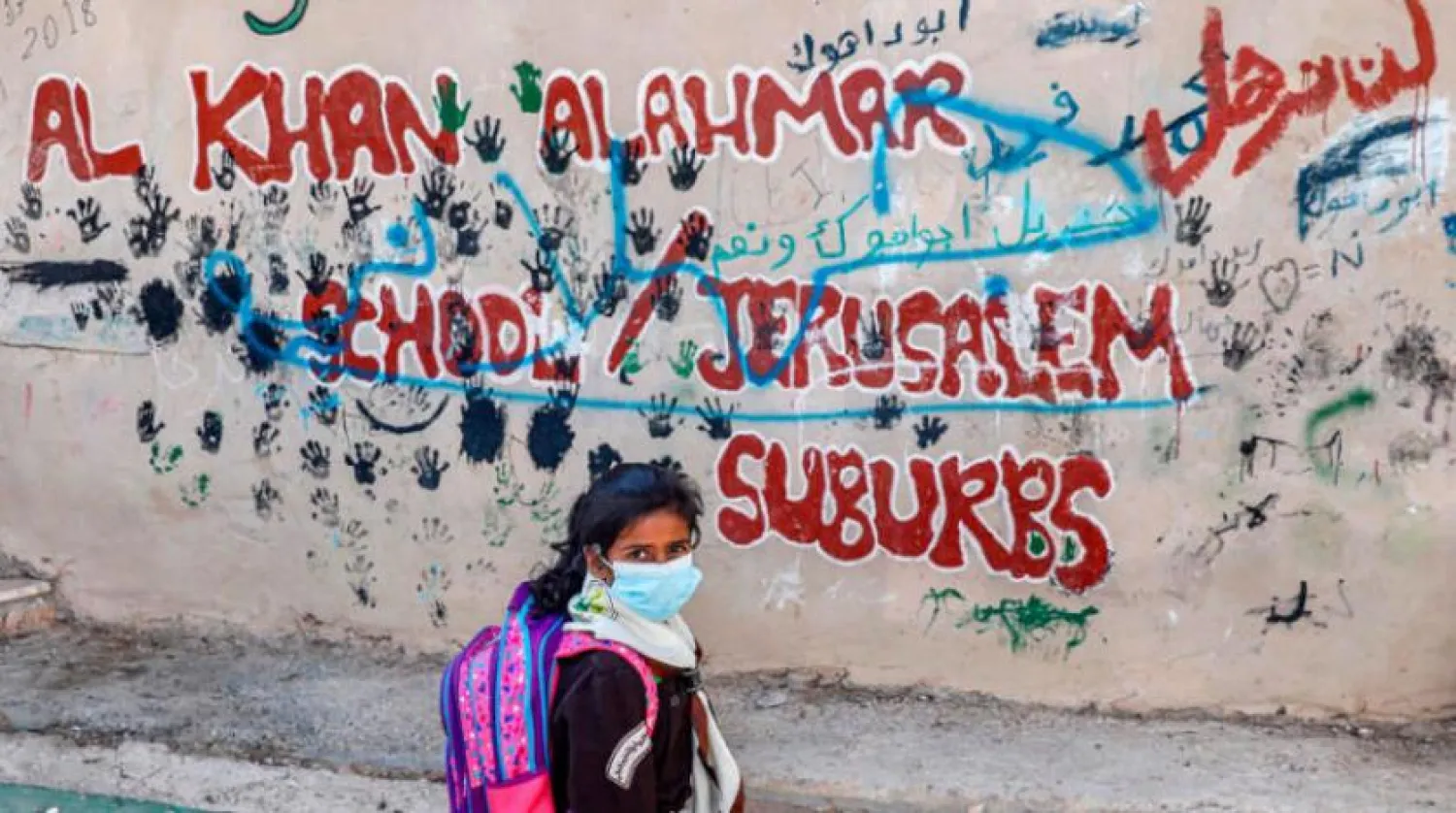The Israeli government presented a new proposal for the Palestinians of Khan al-Ahmar, offering to relocate them to a nearby area.
Israeli human rights associations said that the offer appears to be significant as it takes into account, for the first time, the interests of the Palestinians who own the land, not just the Jewish settlers.
The new site is separated by the main street from the current location and enjoys the same legal status and geographical characteristics. The village is located in Area C between Jerusalem and Jericho.
Residents of Khan al-Ahmar hail from Jahalin tribe, a Bedouin group that was expelled from the Naqab desert in 1951. After their expulsion, they sought residence in 25 locations, some inside Israel and others in the West Bank that was then under Jordanian rule.
A group of families leased the land from an Arab landowner in Anata, northeast of Jerusalem. For decades, the situation remained relatively calm in Khan al-Ahmar, even when the families again came under Israeli rule after the 1967 war.
However, their biggest problem emerged after Oslo Accords, as they were placed under the authority of the Israeli military government, like all residents of Area C.
Israel has drawn up a plan to reduce the Palestinian population to a minimum in this area. It seized the properties of the Bedouins and allocated them to expanding Kfar Adumim settlement.
The Israeli authorities refused to grant 30 families in Khan al-Ahmar any construction or development permits, and Israeli soldiers would enter the village every now and then to demolish one or two tent-like structures, which they considered illegal.
In 2009, when the construction of a new, unofficial primary school was completed, aiming to serve 170 children from Khan al-Ahmar and the surrounding Bedouin communities, the Israeli authorities began preparing to expel them completely from the area.
The school, which is the only rubber-tire school in the world, has earned international fame.
Despite the international solidarity, Israel insisted on evicting the village and issued judiciary orders, most recently from the "Israeli High Court of Justice", to evacuate it.
The decision sparked widespread Palestinian and European outrage, prompting Prime Minister Benjamin Netanyahu refrain from implementing the decision.
Last October, the Israeli Public Prosecutor informed the Supreme Court that the government did not intend to evacuate and demolish Khan al-Ahmar within the next four months.
The far-right is pressuring Netanyahu to carry out the evacuation, and he has pledged to do so, but officials in his office are negotiating with the residents on other solutions.









